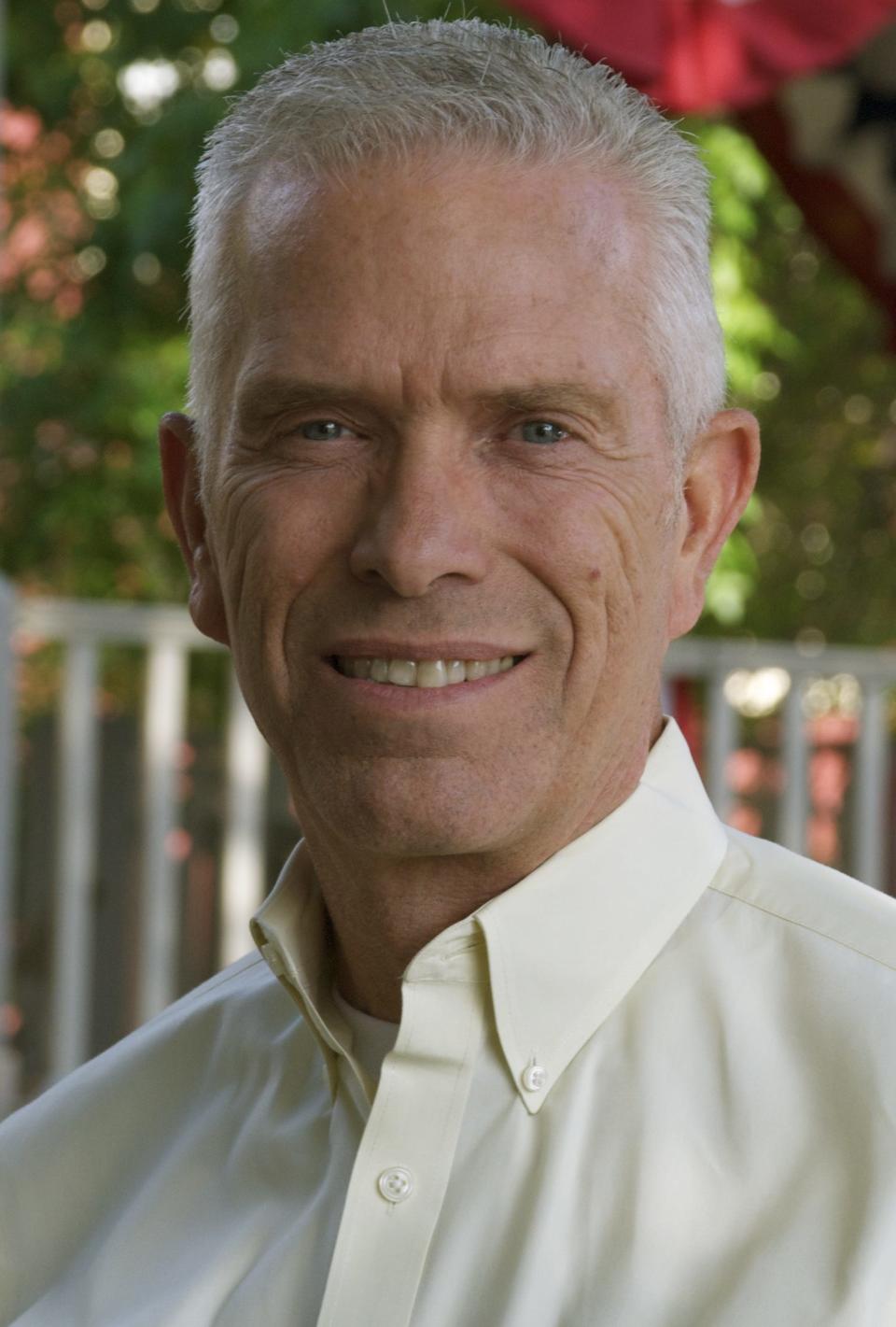Six-term incumbent vs. Mahoning County business owner in 6th Congressional District
- Oops!Something went wrong.Please try again later.
- Oops!Something went wrong.Please try again later.
Many Stark and Tuscarawas County voters find themselves in a new 6th Congressional District as part of the Republican-controlled Ohio Redistricting Commission plan approved in March.
In addition to portions of Stark and Tuscarawas, the district covers nine entire counties and runs along the Ohio border from Mahoning County on the northern end to Washington County on the southern end.
But while the district is new. The type of congressional matchup for voters is a familiar one. An established Republican incumbent with overwhelming resources in a Republican-leaning district faces a Democratic challenger with no elected experience, almost no name recognition and paltry campaign funds. Both candidates won their party primaries in May by a substantial margin, all against rivals with no elected experience.
More:Ohio 6th congressional district primary: Rep. Johnson wins GOP primary in landslide

Who is Republican Bill Johnson?
Six-term U.S. Rep. Bill Johnson, R-Marietta, 67, is a new candidate for Stark and Tuscarawas voters. But his name is well known in the eastern rim of Ohio, much of which was in the former district that repeatedly elected him since 2010. Johnson, who then lived in Poland, Ohio, had been the chief information officer of automotive electronics company Stoneridge.
He is a former Air Force lieutenant colonel born in North Carolina, and a married father of four with six grandchildren.
He's a proponent of the fossil fuel industry, a fervent defender of former Republican President Donald Trump and a fierce opponent of major legislation championed by Democratic President Joe Biden. He touts his membership in the bipartisan Problem Solvers Caucus, which he said shows his willingness to work with Democrats.
Johnson said that Stark County residents are telling him that their top concerns are inflation, especially the cost of groceries and gas, illegal immigration and crime.
He said one way for Congress to stop fueling inflation is to "stop spending money we don't have" and he said he's opposed the "trillions and trillions that have been spent by the Biden administration for green initiatives." Johnson said if Republicans take the House majority, "we’ll be putting a lot of brakes on the spending, the reckless spending" and will reverse federal funding to hire 87,000 IRS agents that he claims will dig "into your pocketbooks." And a Republican-controlled Congress would facilitate permits for pipelines that would "bring down the cost of energy."
Johnson said about people crossing the southern border, ”They're streaming across our border. We have a fentanyl crisis in this country. I'm not saying everybody coming across the border is here to sell drugs. But they're crossing illegally. We don’t know what they’re crossing for. ... Who’s going to take care of these folks?”
He said a Republican-controlled Congress would fund resuming building the border wall.
As for crime, Johnson didn't have a specific federal proposal but “rather than defund the police, we want to make sure law enforcement has the funding and the training to be able to do the job to keep our community safe.”

Who is Democrat Louis Lyras?
Johnson's challenger Louis Lyras, 71, is a former Republican congressional candidate turned Democrat who lives in Campbell in Mahoning County.
He owns an industrial bridge painting company called Corcon. He is a 1972 Ohio State University graduate and married father of six grown children.
Lyras doesn't offer a specific plan. But he expressed support for collective bargaining, deficit reduction, loans to businesses under the now-defunct Paycheck Protection Program launched in 2020, the infrastructure bill passed by Congress last November, the new federal law that seeks to foster production of computer chips in the United States and expanding nuclear power.
"I'm going to bring something else to the table. I’m going to bring 50 years as an entrepreneur," said Lyras. "I am an environmentalist. I want these jobs. I’m a big proponent of nuclear energy. I think that could save our nation.”
Energy positions
Lyras clarified that he's for a gradual transition in reducing carbon emissions as part of a 10-year plan for energy independence. He said he's for electric cars, hydrogen-fueled vehicles as well as building nuclear power plants. But Lyras said he doesn't support shutting down coal mines or fracking operations.
Johnson, as a member of the House Energy and Commerce Committee, said he does not deny that human-produced carbon emissions are affecting the world's climate, but he indicated it's not the sole reason.
"I was born and raised on a farm. I'm not a climate denier. I understand how critically important it is we protect the environment, the air we breath, the water we drink, the land we grow our food on. But my problem is shutting down fossil fuels, the energy source that provides 90% of the world's energy today," said Johnson. "If we were to quadruple the amount of energy, (natural) gas we're exporting, ... it would have more of an effect on reducing carbon emissions than if we were to electrify every vehicle in America and put a solar panel on every home. We can solve this problem without throwing out the baby with the bath water."
Johnson said it's not worth the damage to the economy and the fossil fuel industry from the U.S. becoming a zero-carbon economy by 2035. He said it would have a scant effect on slowing global warming over the next 80 years.
When asked about inflation, Lyras said he anticipated the Federal Reserve's raising of interest rates would eventually reduce inflation. He said Congress could perhaps "tweak" the federal government's response to inflation by capping the cost of some drugs like insulin.
With the U.S. Supreme Court overturning Roe v. Wade, Lyras said he supports the effort to codify into federal law Roe v. Wade. He said he also backs a new federal law that codifies the U.S. Supreme Court decision that said same-sex couples had the right to marry and have their marriages recognized by the state and federal governments.
Johnson, who has said he's anti-abortion and believes life starts at conception, said the appropriate place for abortion policy to be decided is by state legislatures and not the federal government. When asked about a proposed federal ban on abortion, Johnson said, "it's not something that the federal government should be dictating. I don't think we need to bring this issue back to the federal government."
Other positions
Lyras said he would have voted to support Democrats' proposed voting rights bill, to seek to limit gerrymandering of congressional district lines and to prevent unreasonable restrictions on people's ability to vote.
Lyras said he's "pro-education" and wants more funding for education. But he said he can't answer how much more funding public schools need. He opposes any government providing vouchers to pay for children to attend private schools, saying that destroys public schools.
As for deficit reduction, "We have to find ways to tax, I don’t like to say tax the rich but making taxes a little more equal amongst everybody.”
But as to exactly what to do, "I can't answer that one right now," Lyras said. "I would have to study it a lot more."
Lyras said he's a reluctant supporter of government subsidies to make industries economically viable in the United States.
More:U.S. Rep. Bill Johnson facing many challengers in Ohio's new 6th Congressional District
Who has the bigger financial backing?
From January 2021 to June 30, Johnson raised at least $1.19 million in campaign contributions, with more than $634,000 from individuals, according to his campaign finance filings with the Federal Election Commission.
Lyras has raised at least $12,726 in campaign contributions with $9,585 from individuals. That's not including the $50,000 he loaned his own campaign.
Lyras criticized Johnson for voting against the American Rescue Plan, the infrastructure bill and Inflation Reduction Act, important pillars of President Biden's agenda.
"I think when you vote 100%, or 98% along party lines, you're not legislating," Lyras said.
Johnson said he voted against the infrastructure bill “because it wasn’t infrastructure." He said only a small percentage went to infrastructure. And he said he voted against the Inflation Reduction Act because it funded the hiring of 87,000 Internal Revenue Service agents and "spent hundreds of millions of dollars for green initiatives and again, that's money we don't have.“
Johnson said the American Rescue Plan also spent "money we did not have," while hundreds of billions of dollars under the 2020 CARES Act during the Trump administration had already been allocated for COVID relief.
In Stark County, the 6th Congressional District covers Alliance, Louisville, Minerva, Canton Township and the townships of Sugar Creek, Bethlehem, Pike, Paris, Sandy, Osnaburg, Washington, Nimishillen and Marlboro and nearly all of Perry Township as well as a few wards and precincts of Massillon. The rest of Stark is in the 13th Congressional District.
In Tuscarawas County, the district covers the cities of Dover, New Philadelphia and Uhrichsville; villages of Barnhill, Bolivar, Dennison, Midvale, Mineral City, Parral, Roswell, Tuscarawas and Zoar; and a portion of Dover Township and the townships of Fairfield, Goshen, Lawrence, Mill, Parral, Sandy, Union, Warren, Warwick and York. The rest of Tuscarawas is in the 12th Congressional District.
Reach Robert at robert.wang@cantonrep.com. Twitter: @rwangREP.
This article originally appeared on The Repository: Louis Lyras challenges incumbent U.S. Rep. Bill Johnson

